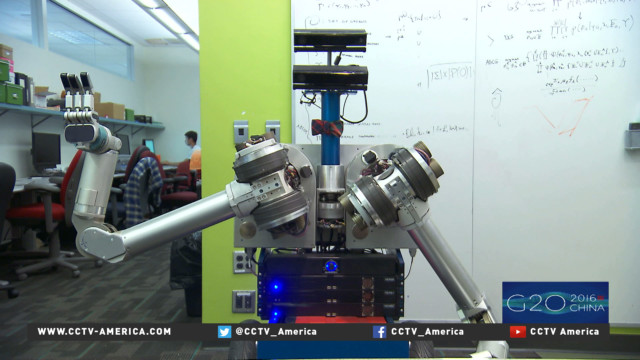One area most nations can agree on is the need for innovation. That will be one of the main focuses in Hangzhou during the G20.
It’s almost a given that the tech jobs of the future will transform our planet. But, will they create enough jobs or will developments in robotics destroy jobs?
CCTV’s Nathan King traveled to Pittsburgh, site of the 2009 G-20 Summit, for an interview with the man dubbed the “Father of Field Robotics.”

Pittsburgh is known as Steel City but in the 21st century it could become Robot City.
The Robotics Institute at Carnegie Mellon University is now a global hub for the technologies of tomorrow from self-driving cars to space probes destined for the moon
Professor Red Whittaker helped found this institute, until recently the only place on the planet where you could get a Ph.D. in robotics. That’s why Uber decided to test its self-driving cars here-using the talent and technology that means big business.
“This has become multi-multi-billion dollar business. Where the major car companies are all creating huge automation centers, billion dollar investments in the technology looking at how this will infuse into the cars of the future,” Whittaker said.
And it’s not just cars. Many industries could be transformed with the tech developed here. There is optimism in the air-new industries creating the hi-tech jobs of the future.
“Robotics has become and economic engine in creating jobs, new enterprise and whole new ways of thinking about what we could do in agriculture, mining, driving so many of the enterprises that haven’t changed in centuries.”
Now Professor Whittaker has set his sights on the moon. Andy is a solar-powered moon rover a robot that could live on the moon for centuries. It’s this sort of technology that is attracting global talent to Pittsburgh.
It’s a new dawn for cities like Pittsburgh. The question is can they create as many jobs as they used to?
 CGTN America
CGTN America

